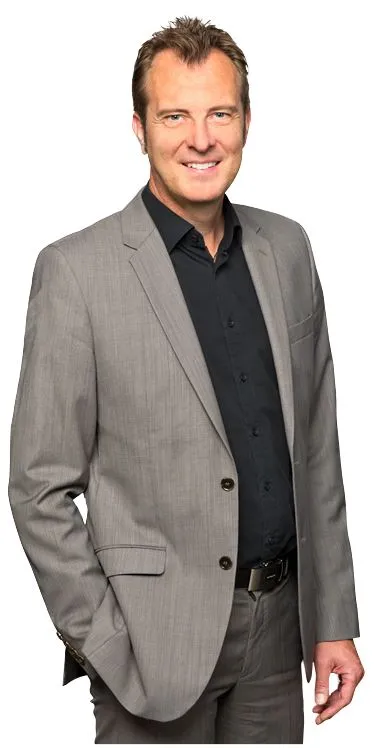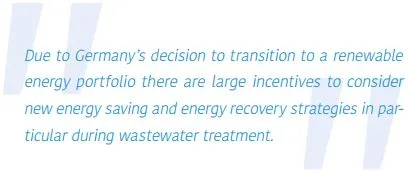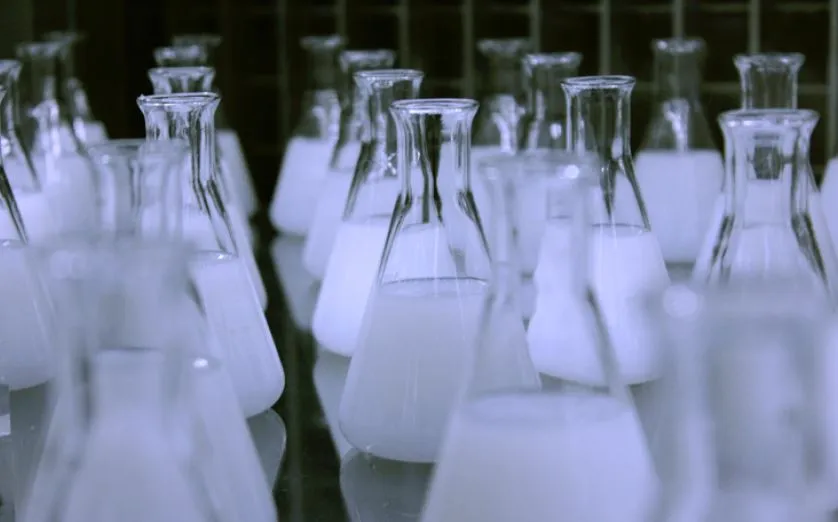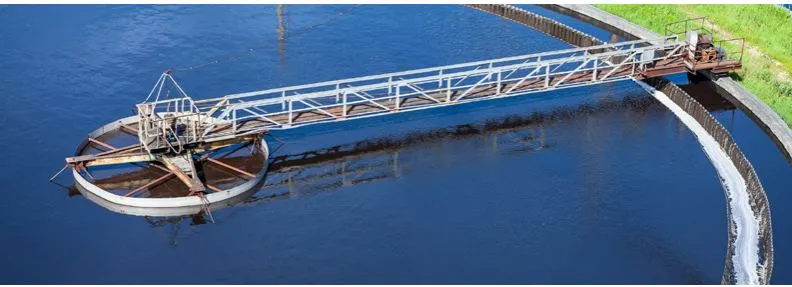Corona Abwasser-Monitoringsystem
Prof. Drewes im Interview im SPIEGEL zur Corona Abwassermonitoring am 07.05.21
„Die Städte sind zunehmend am Limit“
Interview mit Prof. Jörg E. Drewes zur Trinkwasserversorgung in Deutschland.
"Climate change impacts need top priority"
Interview with Prof. Dr.-Ing. Jörg E. Drewes, Technical University Munich
Orinigally published in Water & Wastewater Technolgies Issue 1 2016

What visibility has the German research in the international water and wastewater research community?
Prof. Drewes: Well, research in water and wastewater covers a lot of aspects, but I believe it is fair to say that the German water research is well positioned internationally both regarding basic research and applied research. This is expressed not only in a representative number of publications in the leading international peer-reviewed journals of our field compared to other countries with a strong water research community, but also in management approaches and technologies, which were developed in Germany, that are being adopted and applied in other countries. I think this is an important aspect since it demonstrates that research being performed in Germany doesn’t just have impact in the scientific community but it also matters to practicing engineers and decision makers outside Germany. Of course, there is always room to grow, for example publishing more of the outcome of large research efforts in peer-reviewed international publications and promoting German research findings on international platforms (i.e., professional associations, conferences), but overall I feel the water research being performed in Germany is making important contributions to the international water research agenda.
In which areas do German universities play a leading role?
Prof. Drewes: Germany’s decision to transition to a renewable energy portfolio certainly also had implications for the water and wastewater sector. Due to this decision but also due to the relative high specific energy cost compared to other highly industrialized countries (for example the cost per kWh in Germany is double to what water utilities pay in North America), there are large incentives to consider new energy saving and energy recovery strategies in particular during wastewater treatment. Research being done in the area of energy-efficient biological wastewater treatment (e.g., deammonification; improvements of conventional activated sludge treatment) and energy recovery strategies (e.g., biogas and waste heat utilization) embedded in comprehensive energy audits distinguishes Germany from other countries. In addition, investigating opportunities and the technical and economic feasibility of phosphorus recovery from wastewater is an area where German universities are leading. For many years, German universities and research institutions are investigating the fate of micropollutants (e.g., pharmaceuticals, household chemicals, endocrine disruptors) and emerging microbial contaminants (e.g., antibiotic resistance) in the aquatic environment. Research being performed in Germany has resulted in major advancements in this space in particular regarding analytical methods to quantify these chemicals and their transformation products at minute levels, assessing their risk to the aquatic environment, and developing and testing treatment and source control options to improve their removal during water and wastewater treatment.
Are there any research gaps that should be addressed?
Prof. Drewes: For Germany, the areas that need attention in research in my opinion are issues related to an aging infrastructure and the lack of investments since preparing and planning for the future has become more uncertain. Investments are urgently needed to maintain our water and wastewater infrastructure while planning for these investments is more challenging in the world we live in today. We are facing demographic shifts and an increasing trend that people relocate to cities; there are new requirements to address energy savings and recovery strategies but also more stringent discharge limits (e.g., phosphorus) and the need to potentially also reduce new contaminants (e.g., micropollutants, antibiotic resistance; microplastic). Research is needed to develop more flexible and resilient solutions that are able to cope with these issues simultaneously in the face of increasing uncertainty.

Which global research trends and challenges do you expect within the next years?
Prof. Drewes: A significant challenge in the future will be how we manage the interplay of water, climate change and energy. Climate change impacts are already noticeable in an increasing number of more extreme events (i.e., droughts and floods), changes in water availability, and shifts in water quality. How do we better prepare for these extreme and rare events? Are there opportunities to better predict these changes? How can we increase resilience of our water infrastructure and integrate energy efficiency and resource recovery aspects. Countries with a well established but aging water and wastewater infrastructure, which needs to be replaced, require solutions that are adaptable to these changing conditions. The increasing global trend of urbanization will increase the pressure on cities to provide safe water supply and sanitation. This also offers opportunities to transition to new water management approaches by integrating resource recovery (i.e., energy, heat, nutrients) and water reuse concepts promoting the use of alternative supplies. We might also want to revisit our current water supply paradigm in providing a water quality irrespective of use. Significant resources could be saved by providing fit-for-purpose treatment schemes providing a water quality that is tailored to the local needs and conditions without compromising public health. These contemporary approaches are particularly important for both fast growing urban centers in countries with growing economies but also developing communities.
Can you identify a contemporary issue? Migration? War for water? Micropollutants? Virtual water import/export?
Prof. Drewes: The topics you mentioned are all important. On a global perspective, I believe climate change impacts are strongly affecting the water sector in so many aspects that we need to continue addressing these at a high priority. In many places, the frequency of droughts and extreme rainfall events is increasing. Earlier spring run-offs and increased surface water temperatures represent a new pattern that is affecting both water supply and water quality. Developing adaptation strategies for safe water supply and sanitation in the future, including economic, social, and ecological approaches to meet climate-related challenges, is what it will take.
Are there specific German solutions to achieve the Sustainable development goals of the UN?
Prof. Drewes: The United Nations has proposed 17 goals for sustainable development to end poverty, protect the planet, and ensure prosperity for all. While clean water and sanitation is one of these goals, water is also affecting either directly or indirectly almost of all the remaining goals since it is closely linked with the provision of food, energy and economic development. These challenges truly call for more holistic approaches how we address water resource management and sanitation. I believe there are unique opportunities for Germany to assist in addressing these issues. What distinguishes Germany from many countries is the fact that the Germany water sector consists of four solid pillars, which provide a highly functional and effective provision of water, wastewater and water resources management. These pillars are a.) a well built-out water and wastewater infrastructure with its reliance on highly protected natural water supplies, b.) rate structures that cover costs, c.) water authorities that enforce meeting standards and regulatory requirements, and d.) capacity building that results in proper education of highly trained operational technical staff, scientists and engineers in the water sector. In order to provide sustainable development in particular with respect to water and sanitation all four of these elements are needed. The features of these individual elements as they exist in Germany might not be transferable to other places one-to-one, but adopting and pursuing the core ideas of these four elements in concert will make a difference.

Capacity building and international research programs - A chance to solve the global development problems?
Prof. Drewes: Absolutely, capacity building on all levels (i.e., operator training, contemporary education of scientists and engineers as well as continuous education of people in their profession) is needed as all well as pursuing targeted research programs to tackle the global challenges we face today to achieve a more sustainable development.
Water resource problems in the southern European countries: Should consumers rethink immediately?
Prof. Drewes: Climate change will have a major impact on water resource availability particularly in Southern Europe. The forecast of the European Environmental Agency regarding water availability in many regions of Southern Europe suggest a reduction between 20 and 100 percent in the next 50 to 70 years. This will have major implications on water supply, agricultural, energy generation and environmental health in these regions, but it will also affect us since we import food products from those regions and travel there for vacation. It is good to be aware of these issues as Europeans as we live under a common roof.

